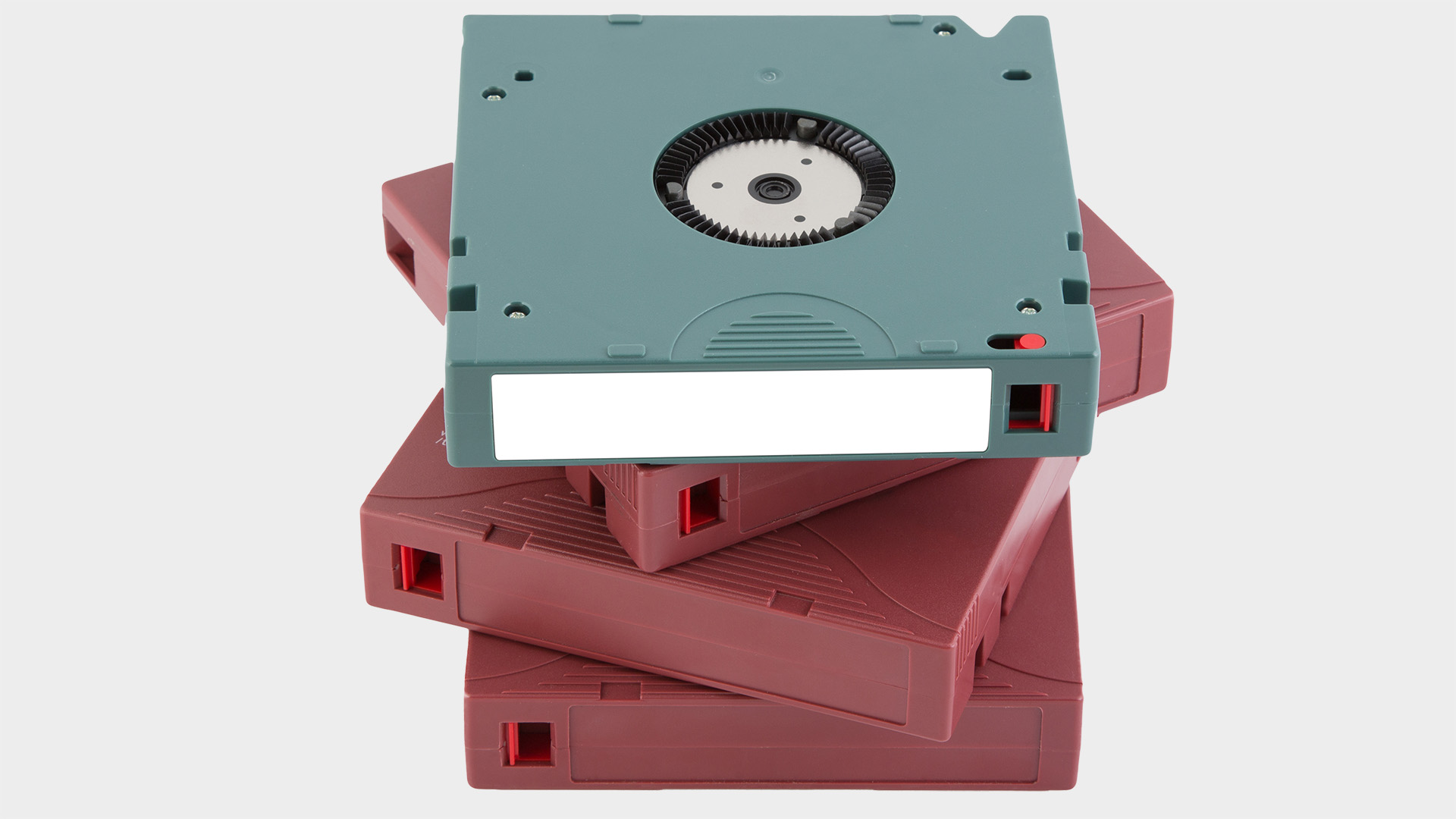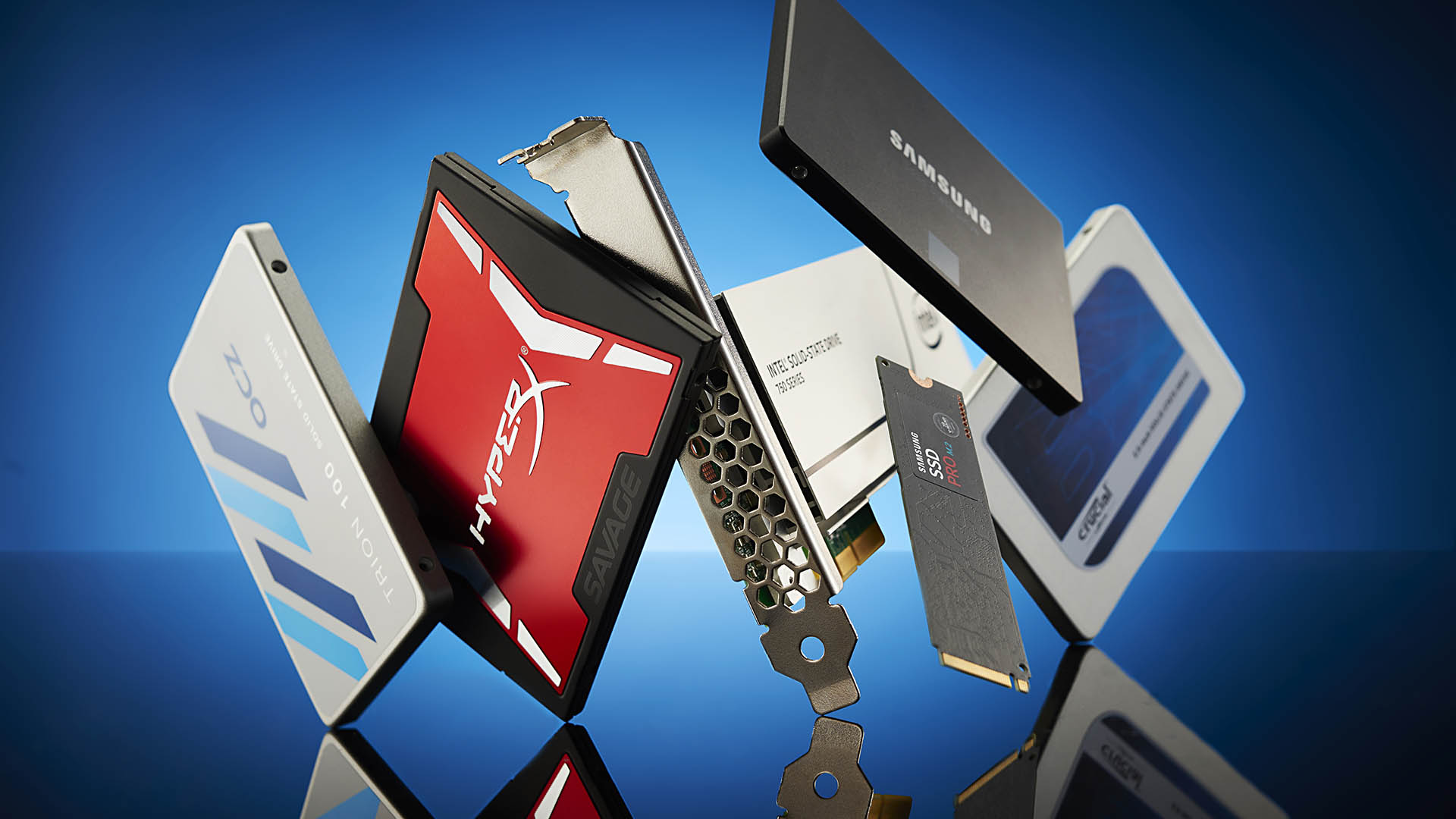Companies can't get enough of good ol' tape storage for ransomware resistance
Tape technology is an oldie but a goodie, and just had its best year ever.

Tape storage never went away for big data storage companies but you'd be forgiven for not being familiar with the tech as a PC gamer in 2022. We've since moved onto much, much faster technologies for our gaming PCs, the likes of NVMe SSDs. But tape isn't dead, far from it—it's actually been a record year for tape storage sales, reportedly spurred on by fear of cyber attack.
Tape is a pretty ancient storage technology by modern standards. There are magnetic tape-based storage systems going back to the first commercial PCs in the '50s. The ones we're chatting about today, Linear Tape-Open (LTO) came a little later than that, in the '90s. This is essentially an open standard for magnetic tape storage created by a cross-industry consortium, and manufactured today by the likes of HP Enterprise, IBM, and Quantum Corporation.
It's been a stellar year for LTO, too. According to an LTO sales report (via Sweclockers), using data from the companies responsible for manufacturing LTO tapes, 148 exabytes of total tape capacity was shipped in 2021. That's far more than 2020, where 105 exabytes was shipped, or the previous record year of 2019 with 114 exabytes of capacity.
The reason for the increase? It's chalked partially up to an increased threat of cybersecurity and malware, such as ransomware.
“We’re continuing to see organizations return to tape technology, seeking out storage solutions that offer high capacity, reliability, long term data archiving and stronger data protection measures, especially as threats to cybersecurity soar,” Patrick Osborne, GM and VP of HPE Storage, says.
So what makes tape storage so great against bad actors on the internet trying to make a quick buck? It comes down to something called an air-gap in storage security. Air-gap means data storage that is offline and inaccessible without physical access to it. Unless some hacker is prepared to break into a warehouse of tape drives and plug them all in and wait for the tediously long time it would take to steal all the data off each drive, the data can't be easily destroyed or copied.
Essentially, the tape drive itself isn't some wonderful, anti-malware solution. More that it's cheap, high capacity, stored offline, and can be left on a shelf for a long time and work just fine.
The biggest gaming news, reviews and hardware deals
Keep up to date with the most important stories and the best deals, as picked by the PC Gamer team.

Best SSD for gaming: the best solid state drives around
Best PCIe 4.0 SSD for gaming: the next gen has landed
The best NVMe SSD: this slivers of SSD goodness
Best external hard drives: expand your horizons
Best external SSDs: plug in upgrades for gaming laptops and consoles
Now bear in mind that companies won't likely rely on a tape drive for there primary backup, more so as a second or third stage backup in case it all goes terribly wrong. That means that they may still have important data on more vulnerable drives, perhaps even cloud attached storage, and so could still be held to ransom by hackers looking to release stolen information if they don't get their ransom money.
Recently cyberattacks of that sort have been fairly common, most famously from a group known as Lapsus$, which claimed responsibility for hacks on Microsoft, Nvidia, Samsung, and more. That's just a drop in the ocean, however, and cyber attacks of this sort are something most internet users and companies have to be aware of and planning for nowadays.

Jacob earned his first byline writing for his own tech blog. From there, he graduated to professionally breaking things as hardware writer at PCGamesN, and would go on to run the team as hardware editor. He joined PC Gamer's top staff as senior hardware editor before becoming managing editor of the hardware team, and you'll now find him reporting on the latest developments in the technology and gaming industries and testing the newest PC components.

